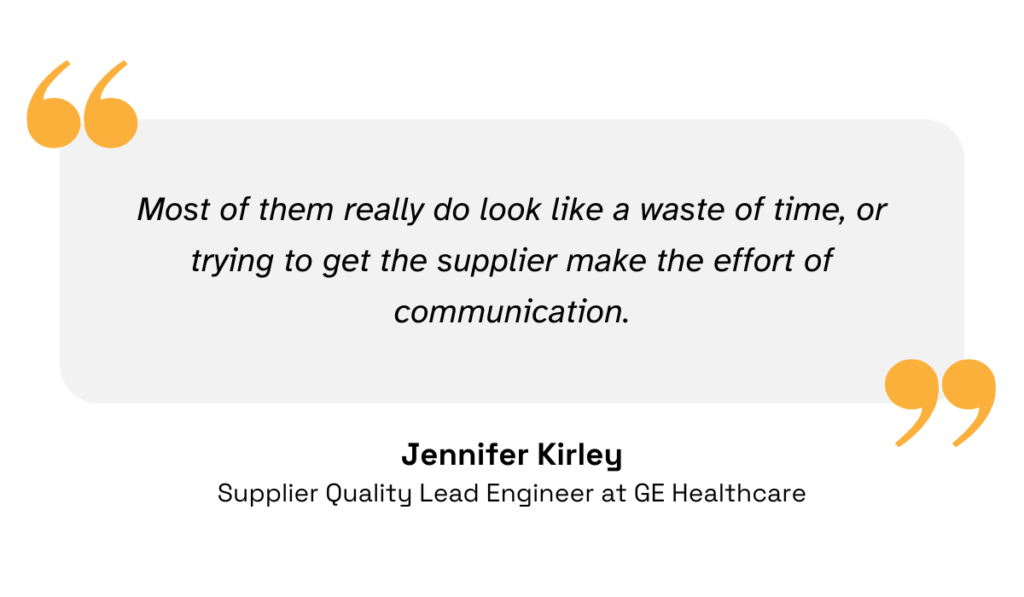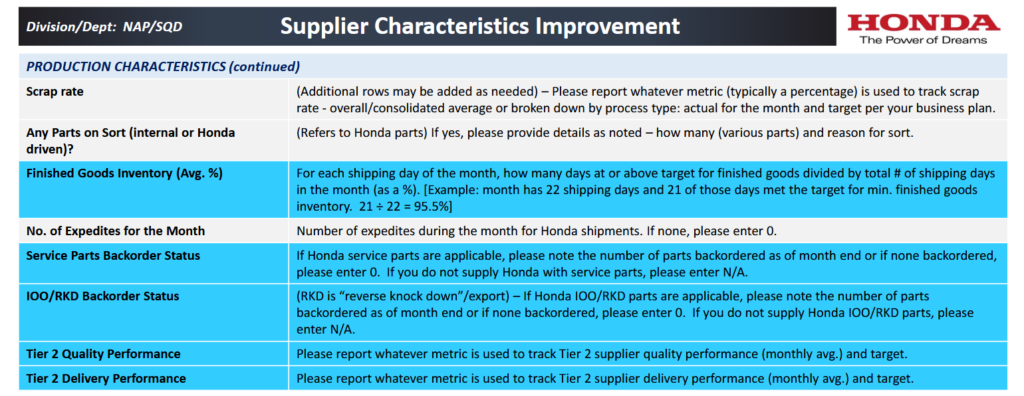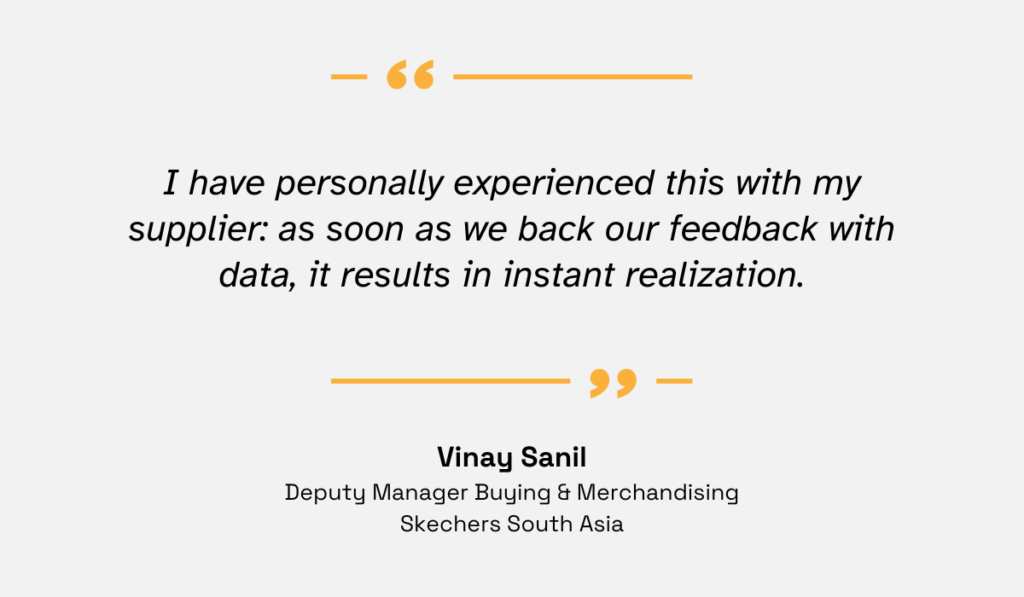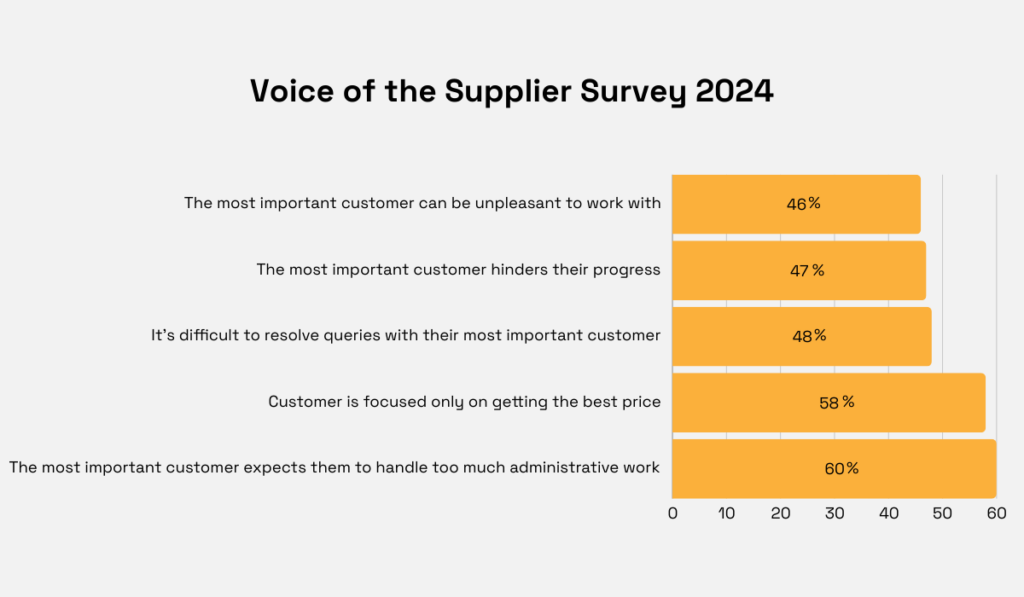Supplier Evaluation Email Template: Streamline Your Assessment Process


Evaluating suppliers can feel overwhelming, especially when juggling several other tasks.
But getting it right is essential.
After all, the quality, efficiency, and reputation of your supply chain depend on partnering with reliable suppliers.
At the core of a good evaluation is clear and professional communication.
And that’s where email templates come in handy.
They save you time, keep communication consistent, and ensure you ask the right questions.
Today, we’ll walk you through them and share some examples to simplify your supplier assessments.
Supplier evaluation emails help you gather information, address concerns, or review performance in a way that’s both structured and straightforward.
You might send one during:
Done right, these emails avoid misunderstandings, set clear expectations, and build a foundation for productive, long-term partnerships.
Here are three things to include in an email to get a thoughtful and timely response from suppliers.
Be transparent about why you’re conducting the evaluation.
Whether it’s a routine review, a compliance check, or addressing performance concerns, your supplier needs to understand the reason behind the email—and the assessment.
Equally important, let them know the outcomes you’re working towards, such as:
This is especially important knowing that many suppliers see evaluation surveys and questionnaires as time-wasters.
Hence, the response rates are low.
As Jennifer Kirley, Supplier Quality Lead Engineer at GE Healthcare, puts it:

Illustration: Veridion / Quote: Elsmar
Your job is to break through that mindset by showing the value of their response.
So, make it clear how their input will drive better outcomes for both sides.
For example, you might say that the evaluation will help you continue to deliver exceptional value to your customers through supplier partnerships.
When suppliers see how their input directly impacts success, they’re much more willing to contribute.
To get meaningful responses from suppliers, your evaluation needs to be clear and focused.
Break down the assessment areas into measurable categories, like quality, cost, compliance, and cybersecurity, and for each, ask for the information you need.
This could, for instance, include:
| Quality | Ask about the KPIs they use to measure product quality or certifications they hold. |
| Costs | Request a breakdown of shipping, packaging, handling, and any hidden fees. |
| Compliance | Ask about certifications, sustainable practices, and ethical standards. |
| Cybersecurity | Ask about data protection measures and protocols. |
Honda is a great example with its detailed supplier report cards divided into six sections:
For each category, they ask for specific information, some of which you can see below:

Source: Honda
Honda sends out these cards to suppliers every month to continuously monitor and assess supplier performance.
However, you can’t cram all these supplier evaluation questions into the body of an email—it’ll overwhelm the recipient and lower response rates.
Instead, attach a checklist, questionnaire, or a structured report card in the email, as Honda does.
It will keep the email concise while giving suppliers a straightforward format to provide the details you need.
The last thing you have to include in your email is a deadline.
Without a clear deadline, your request might end up at the bottom of your supplier’s to-do list.
And if you don’t get a response in time, the evaluation may lose its value entirely.
For instance, if you’re conducting a quarterly review, delays in responses could postpone improvements or disrupt supply chain performance.
That’s why it’s important to specify when you need the information and explain why the timeline matters.
Here’s an example of how to phrase it:
“We kindly request you to submit the completed form by [date], as this evaluation is essential for our upcoming quarterly review.”
Adding context will encourage suppliers to prioritize your request and send that form back to you in time.
The right email for supplier evaluations is as important as the evaluation process itself.
Below are templates for common supplier evaluation scenarios to streamline your process, foster collaboration, and gather the information you need quickly and efficiently.
Plus, we added some meaningful insights to give you more context on why to send different evaluation emails.
To initiate the supplier evaluation process, you can start with an email like this:
Dear [supplier name],
We hope this email finds you well.
As part of our commitment to maintaining high-quality partnerships, we are conducting a routine evaluation of our suppliers to ensure that our collaboration continues to meet the highest standards of quality, efficiency, and compliance.
We’ve prepared a [checklist/questionnaire/report form] outlining the information we require. It covers the following areas:
We kindly ask you to complete and return the attached form by [specific deadline].
Your input is critical to helping us strengthen our partnership and deliver exceptional value to our customers.
If you have any questions or require assistance, feel free to reach out directly at [your email] or [your phone number].
Thank you for your cooperation.
Best regards,
[Your Full Name]
[Your Job Title]
[Company Name]
If you remember from earlier, not every supplier believes in the value of these emails and evaluations.
Rather, they find it time-consuming. Or, they simply have too much other work.
So, it may happen that they won’t reply.
This email is basically a gentle nudge for those who have not yet responded to the initial evaluation request:
Dear Supplier,
I hope you’re doing well. I wanted to follow up on the supplier evaluation form we shared on [initial email date].
As we are preparing for upcoming decisions regarding partnerships, having your completed form by [specific deadline] is critical to ensure we can include your insights in our evaluation process.
We understand your time is valuable, which is why we’ve designed the evaluation to be as straightforward as possible.
Completing it should take no more than [estimated time], and your input will help us make decisions
that benefit both parties.
If you’ve already submitted the form, thank you! If not, please find the form attached again for your convenience.
If you have any questions or concerns, feel free to reach out directly—I’d be happy to assist.
We appreciate your prompt attention to this request and look forward to your response.
Best regards,
[Your Full Name]
[Your Job Title]
[Company Name]
You can use this template when a supplier needs to provide supplementary documents or information.
It should outline what is needed, why it’s needed, and the deadline for submission.
Here is a more specific example, but feel free to replace the information with your needs:
Dear Supplier,
As part of our ongoing supplier evaluation process, we require additional documentation to finalize your assessment.
This information is crucial for ensuring compliance with our standards and making informed decisions regarding contract renewals.
Specifically, we kindly request the following:
We would appreciate it if you could provide these documents by [specific deadline].
Meeting this timeline will help us maintain the evaluation schedule and avoid delays in finalizing decisions.
If you have any questions or need assistance in preparing these materials, feel free to reach out.
Thank you for your attention to this matter.
Best regards,
[Your Full Name]
[Your Job Title]
[Company Name]
What’s the purpose of evaluating suppliers if you don’t share feedback with them?
But rather than being vague, the feedback should be specific and clearly say what a supplier did well, and where there is room for improvement.
Vinay Sanil, Deputy Manager of Buying & Merchandising at Skechers South Asia, attests to this approach to giving feedback:

Illustration: Veridion / Quote: Linkedin
Here’s a specific template you can use to notify suppliers about the evaluation results. It will encourage them to take action:
Dear Supplier,
Thank you for your continued partnership with [Company Name]. We have completed your recent performance evaluation, and we’d like to share the results.
Please note that this evaluation is objective, conducted based on established standards, and serves as a formal means of documenting and communicating our assessment.
It will be used in future performance improvements, contract renewals, and ongoing collaborations.
[Strengths]
[Areas for Improvement]
[Action Required]
We value your contribution to our supply chain and are confident that implementing these improvements will further strengthen our partnership.
We look forward to your feedback and collaboration on these points.
Best regards,
[Your Full Name]
[Your Job Title]
[Company Name]
It’s just as important to gather feedback from your suppliers as it is to provide it.
This is especially true when you consider the concerning insights from the latest Voice of the Supplier survey:

Illustration: Veridion / Data: HICX
The last statistic is the most concerning in the context of our topic, as it suggests that your evaluation process could also be placing an excessive administrative burden on your suppliers.
To assess how your evaluation process is perceived from the supplier’s perspective, you should ask if the criteria were clear and if the questions were relevant to them.
Additionally, you can ask suppliers to suggest how the process can be improved to make it less time-consuming for them.
You can gather the feedback by sending a brief email and attaching a survey:
Dear Supplier,
We are always striving to enhance our partnership, and part of that effort is understanding how you perceive our working relationship as well as the evaluation process you recently underwent.
We kindly ask you to provide feedback in two areas:
Your insights are essential in helping us improve not only how we work together, but also how we manage and conduct supplier evaluations.
We kindly ask that you complete the attached survey, which will take approximately 5-10 minutes. We would appreciate receiving your responses by [Insert Date].
Survey Link: [Insert Survey Link]
Thank you for your time and continued partnership. Your feedback will directly influence our efforts to enhance both our working relationship and the evaluation process.
Please don’t hesitate to reach out if you have any questions or need assistance with the survey.
Best regards,
[Your Full Name]
[Your Job Title]
[Company Name]
Supplier evaluations don’t have to be overwhelming or complicated, as long as you have an easy and streamlined communication channel in place.
And an email is just that.
A well-written email with purpose, structure, and the right questions can simplify the evaluation process, save time, and strengthen supplier relationships.
Put our email templates to work and reap these benefits for yourself.